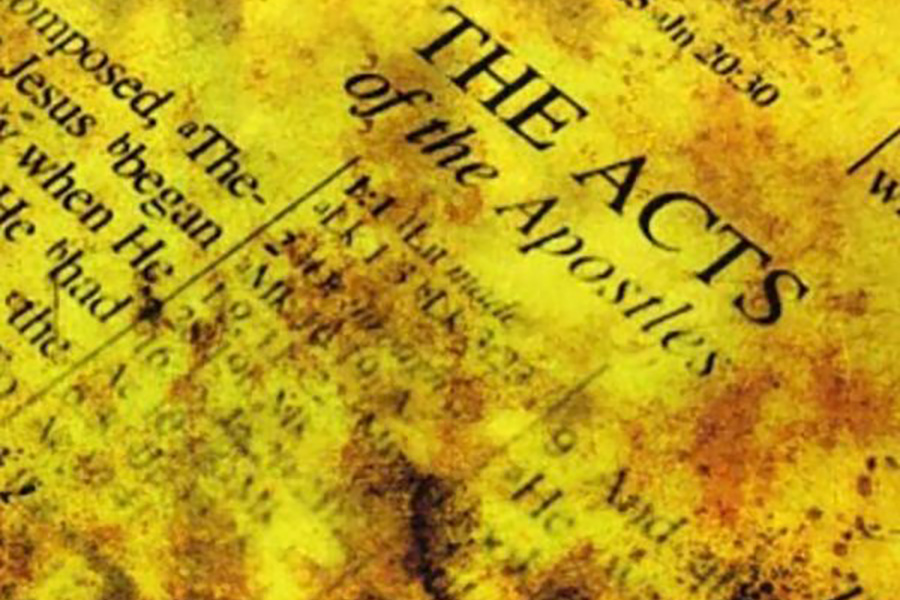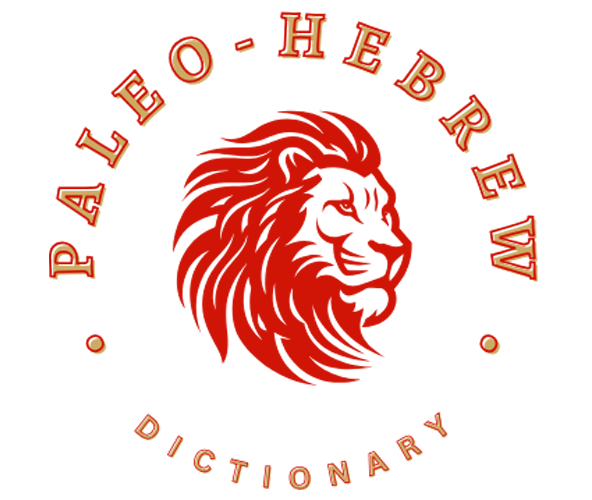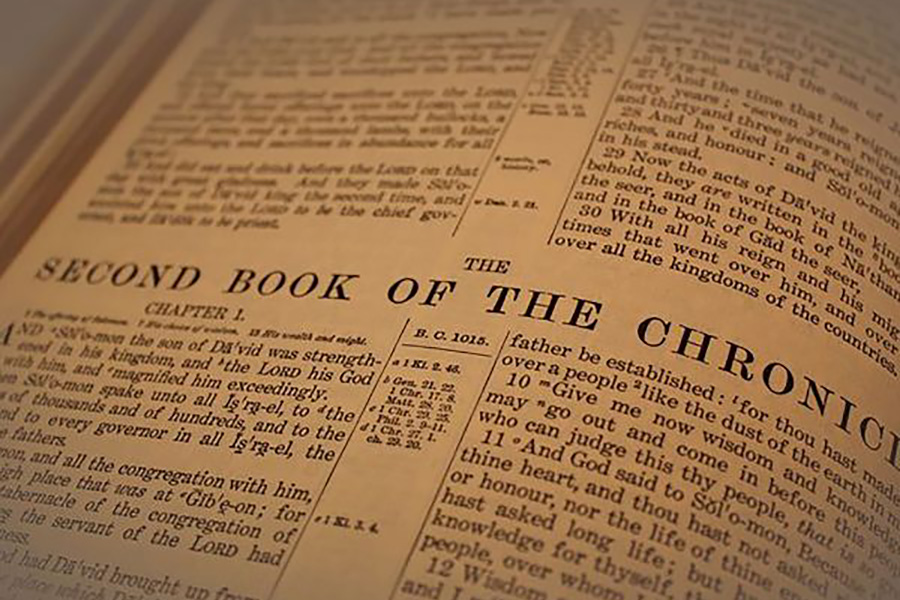The compound word Maāshah HaShalakhayam (𐤌𐤏𐤔𐤄־𐤄𐤔𐤋𐤇𐤉𐤌) or “Acts of the Apostles” is known as a book of scriptures that tells of the founding of the works of those taught by The 𐤌𐤔𐤉𐤇 (Mashayakh) and the spread of his message to the Roman Empire (Adauamay Empire). This is where people claim the Christian Church comes from.
However, The Most High and the 𐤌𐤔𐤉𐤇 (Mashayakh) are against religion; Christianity and Catholicism were created by the Emperor of the Roman Empire, Constantine I in 313 AD (4238 A.M.). The word combines 𐤌𐤏𐤔𐤄 (maāshah) meaning “acts” or “works” and 𐤔𐤋𐤇𐤉 (shalakhay) meaning “one who is sent”, “emissary”, or “apostle”.
The Paleo-Hebrew language or the original language of the Ābarayam is one spoken with an emphasis on the rauakh (breath, wind, spirit). With the language of the Ābarayam, each letter has a meaning and a number associated with it that adds meaning to each word they’re used with. Below you will be able to learn more about the letter in Ancient Hebrew, Yiddish Hebrew, Greek, and much more.
Letter Meanings
| Letter | Meaning |
|---|---|
| 𐤌 (m) – ma | water, chaos, mighty, liquid, massive, sea, blemish |
| 𐤏 (ā) – aa | eye, to see, experience, watch, heed, know, cover, color |
| 𐤔 (sh) – sha | Teeth, eat, consume, destroy, bite, two, change, divide, press, repeat |
| 𐤄 (h) – ha | look, behold, the, reveal, breath, life, man Suffix: to, toward, in the direction of, -ward, her, feminine form, it |
| – | – |
| 𐤄 (h) – ha | look, behold, the, reveal, breath, life, man Prefix: the, this |
| 𐤔 (sh) – sha | Teeth, eat, consume, destroy, bite, two, change, divide, press, repeat |
| 𐤋 (l) – la | Staff, Goad, Control, Toward, Protect, Authority, bind, yoke, lead |
| 𐤇 (kh) – kha | tent wall, fence, separation, divide, abdomen, belly |
| 𐤉 (y) – ya | Arm, hand, work, thrust, deed, make, throw, worship Suffix: establishes a relation to, descendant of, the likeness of. |
| 𐤌 (m) – ma | water, chaos, mighty, liquid, massive, sea, blemish Suffix: them in feminine form. Suffix: when preceded by 𐤉 (yad) creates a plural of people. |
| Ābarayat Number | 808 = 40 (m) + 70 (ā) + 300 (sh) + 5 (h) + 5 (h) + 300 (sh) + 30 (l) + 8 (kh) + 10 (y) + 40 (m) |
| Hebrew Gematria | |
| English Gematria | |
| Simple Gematria |
Based on the meaning of the letters the word could be defined as:
- “mighty know(ledge) to change breath (life) to reveal a change of authority (power) in separation (set apart) worship of multitudes”
- “mighty experience to change man to reveal a change of authority (power) in separation (set apart) worship of multitudes”
- Combines Maāshah and H and the plural form of Shalakh
Definitions for 𐤌𐤏𐤔𐤄־𐤄𐤔𐤋𐤇𐤉𐤌 / Maāshah HaShalakhayam
| Language | Word | Transliteration | Pronunciation | Definition |
|---|---|---|---|---|
| Ābarayat | 𐤌𐤏𐤔𐤄־𐤄𐤔𐤋𐤇𐤉𐤌 | Maāshah HaShalakhayam | ma-eh-shah ha-sha-lakha-yawm | “Acts of the Apostles” |
| English | Acts of the Apostles | Acts of the Apostles | akts uhv thuh uh-pos-uhls | a book of the New Testament. |
| Hebrew | מַעֲשֶׂה־שָׁלַחים | Maaseh Shlichim | mah-as-eh’ shee-leek-eem | “Acts of the Apostles” |
| Arabic | عمل | eamal | ale-mawl | action, work, business, job, labor, act, employment |
| Greek | ἔργον ἀπόστολος | ergon apostolos | er’-gon ap-os’-tol-os | “Act of the Apostles” |
Images for 𐤌𐤏𐤔𐤄־𐤄𐤔𐤋𐤇𐤉𐤌 / Maāshah HaShalakhayam


Definitions for /
When adding the 𐤉 (yad) to the end of a word, it creates a possessive of the original word. It can either signify “my…” or identify a member of a nation. For example, 𐤏𐤁𐤓 (Ābar) is the progenitor, but 𐤏𐤁𐤓𐤉 (Ābaray) is the singular descendant of him also known as a Hebrew.
| Language | Word | Transliteration | Pronunciation | Definition |
|---|---|---|---|---|
| Ābarayat | ||||
| English | ||||
| Hebrew | ||||
| Arabic | ||||
| Greek |
Images for /


Definitions for /
When adding the 𐤌 (mayam) after the 𐤉 (yad) to the end of a word, it creates a plural of the original word. It can identify multiple members of a nation. For example, 𐤏𐤁𐤓 (Ābar) is the progenitor, but 𐤏𐤁𐤓𐤉𐤌 (Ābarayam) are the plural descendants of him also known as Hebrews.
| Language | Word | Transliteration | Pronunciation | Definition |
|---|---|---|---|---|
| Ābarayat | ||||
| English | ||||
| Hebrew | ||||
| Arabic | ||||
| Greek |
Images for /


Definitions for /
When adding the 𐤕 (tau) after the 𐤉 (yad) to the end of a word, it creates a plural of the original word. It identifies the language or a sign of a nation’s existence. For example, 𐤏𐤁𐤓 (Ābar) is the progenitor, but 𐤏𐤁𐤓𐤉𐤕 (Ābarayat) is the language of him also known as Paleo-Hebrew language.
| Language | Word | Transliteration | Pronunciation | Definition |
|---|---|---|---|---|
| Ābarayat | ||||
| English | ||||
| Hebrew | ||||
| Arabic | ||||
| Greek |
Images for /


Classification
You can continue your studies of the words by viewing Strong’s entries for:





